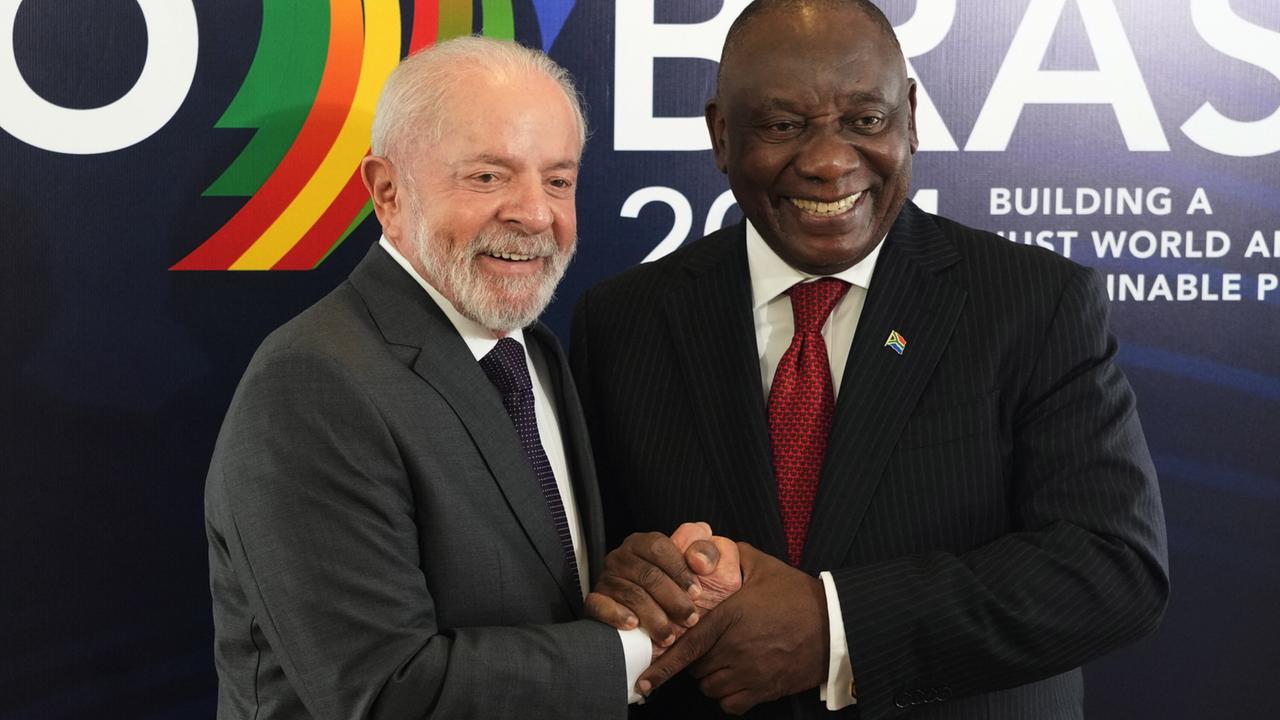Better combating hunger and approaches to taxing the super-rich – this shaped the G20 summit in Rio. Important issues in the global North only played a minor role.
From Sugarloaf Mountain to the Cape of Good Hope – that's not just around 6,000 kilometers as the crow flies that connect two of the most beautiful places on earth. It also has a special symbolism when the G20 presidency moves from Brazil to South Africa as of today.
“This is a very remarkable sign. It will be the fourth time that one of the emerging countries has the presidency of the G20. After Indonesia, India and Brazil, it will be South Africa. This shows a little how the balance in the world is shifting.” said Chancellor Olaf Scholz before his departure from Rio de Janeiro. There he met many heads of state and government who see themselves as officially neutral advocates of a multipolar world.
Ukraine and the Middle East are marginal topics in Rio
Host Lula da Silva wanted to keep the Ukraine war away from Rio. The war probably only made it into the summit declaration under pressure from outgoing US President Joe Biden and possibly also outgoing Chancellor Scholz. But, just like the Middle East conflict, as vague as possible.
This is a reflection of a slow change of power, says Paulo Velasco, professor of international relations at the Federal University of Rio de Janeiro.
In reality, visions and interpretations of wars vary widely among G20 members. So a direct condemnation of Russia or even a direct condemnation of Israel was clearly avoided.
Only a minimal consensus on climate
However, any progress in the fight against climate change was also avoided. The richest countries, which account for 85 percent of carbon dioxide emissions, only wrote the minimum consensus in the final paper. At least they are committed to the Paris climate goals.
State and party leader Xi Jinping apparently ignored any efforts to make China pay as the world's biggest climate sinner.
Lula sets an example
Brazilian President Lula has penetrated with his heartfelt issue: the fight against hunger. “We tried to promote measures that have a concrete impact on people's lives,” said Lula. “We have launched a global alliance against hunger and poverty and sparked an unprecedented debate about taxing the super-rich.”
For the resolutions on the global alliance against hunger – which are surprisingly specific – and the billionaire tax – which remains comparatively vague, but is at least celebrating a premiere on the G20 stage – host Brazil is also receiving a lot of praise from non-governmental organizations.
There is also approval from the G20 successor presidency. South African President Cyrill Ramaphosa made it clear: “Africa fully supports Brazil in the fight against hunger. Food security will be one of the priorities of South Africa's G20 presidency.”
First without Biden, then with Biden
Ramaphosa left it open how high the standards will be when it comes to group photo organization. The official “family photo” of the G20 heads of state and government is most likely to remain public. US President Joe Biden did not make it in time.
24 hours – and a lot of laughter and malice later – the Brazilian organizers took a second photo just to be on the safe side – with the US President and in favor of the old world order.
In the second attempt also with US President Biden – the heads of state and government of the G20 countries stand together for the “family photo”.





